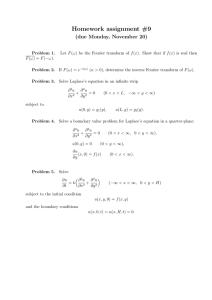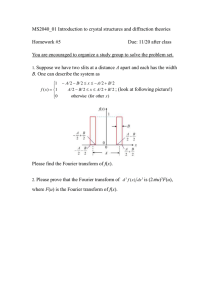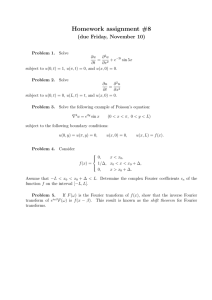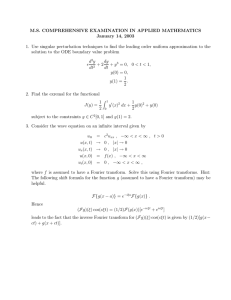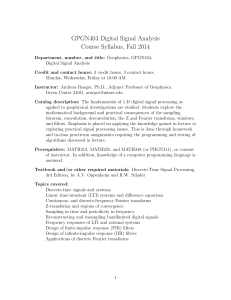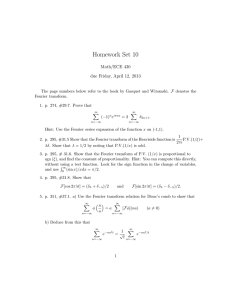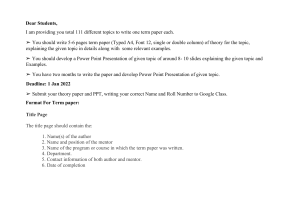Ders Bilgi Formu (İngilizce) Course Name: Digital Signal Processing
advertisement
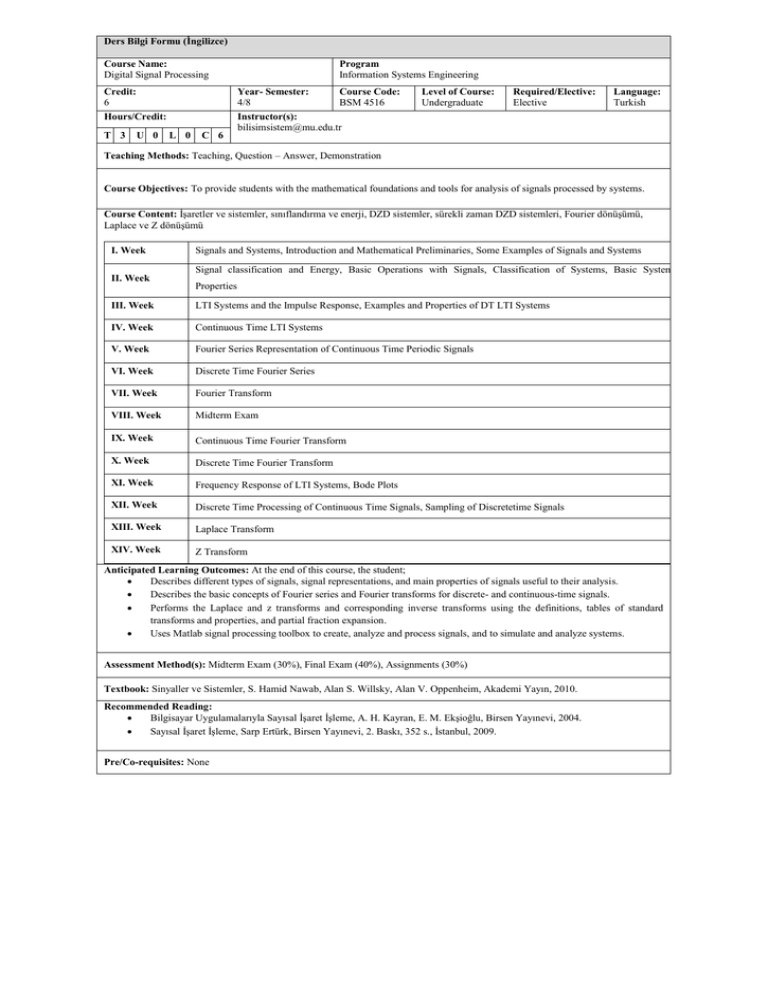
Ders Bilgi Formu (İngilizce) Course Name: Digital Signal Processing Program Information Systems Engineering Credit: 6 Year- Semester: 4/8 Hours/Credit: Instructor(s): bilisimsistem@mu.edu.tr T 3 U 0 L 0 C 6 Course Code: BSM 4516 Level of Course: Undergraduate Required/Elective: Elective Language: Turkish Teaching Methods: Teaching, Question – Answer, Demonstration Course Objectives: To provide students with the mathematical foundations and tools for analysis of signals processed by systems. Course Content: İşaretler ve sistemler, sınıflandırma ve enerji, DZD sistemler, sürekli zaman DZD sistemleri, Fourier dönüşümü, Laplace ve Z dönüşümü I. Week II. Week Signals and Systems, Introduction and Mathematical Preliminaries, Some Examples of Signals and Systems Signal classification and Energy, Basic Operations with Signals, Classification of Systems, Basic System Properties III. Week LTI Systems and the Impulse Response, Examples and Properties of DT LTI Systems IV. Week Continuous Time LTI Systems V. Week Fourier Series Representation of Continuous Time Periodic Signals VI. Week Discrete Time Fourier Series VII. Week Fourier Transform VIII. Week Midterm Exam IX. Week Continuous Time Fourier Transform X. Week Discrete Time Fourier Transform XI. Week Frequency Response of LTI Systems, Bode Plots XII. Week Discrete Time Processing of Continuous Time Signals, Sampling of Discretetime Signals XIII. Week Laplace Transform XIV. Week Z Transform Anticipated Learning Outcomes: At the end of this course, the student; Describes different types of signals, signal representations, and main properties of signals useful to their analysis. Describes the basic concepts of Fourier series and Fourier transforms for discrete- and continuous-time signals. Performs the Laplace and z transforms and corresponding inverse transforms using the definitions, tables of standard transforms and properties, and partial fraction expansion. Uses Matlab signal processing toolbox to create, analyze and process signals, and to simulate and analyze systems. Assessment Method(s): Midterm Exam (30%), Final Exam (40%), Assignments (30%) Textbook: Sinyaller ve Sistemler, S. Hamid Nawab, Alan S. Willsky, Alan V. Oppenheim, Akademi Yayın, 2010. Recommended Reading: Bilgisayar Uygulamalarıyla Sayısal İşaret İşleme, A. H. Kayran, E. M. Ekşioğlu, Birsen Yayınevi, 2004. Sayısal İşaret İşleme, Sarp Ertürk, Birsen Yayınevi, 2. Baskı, 352 s., İstanbul, 2009. Pre/Co-requisites: None
